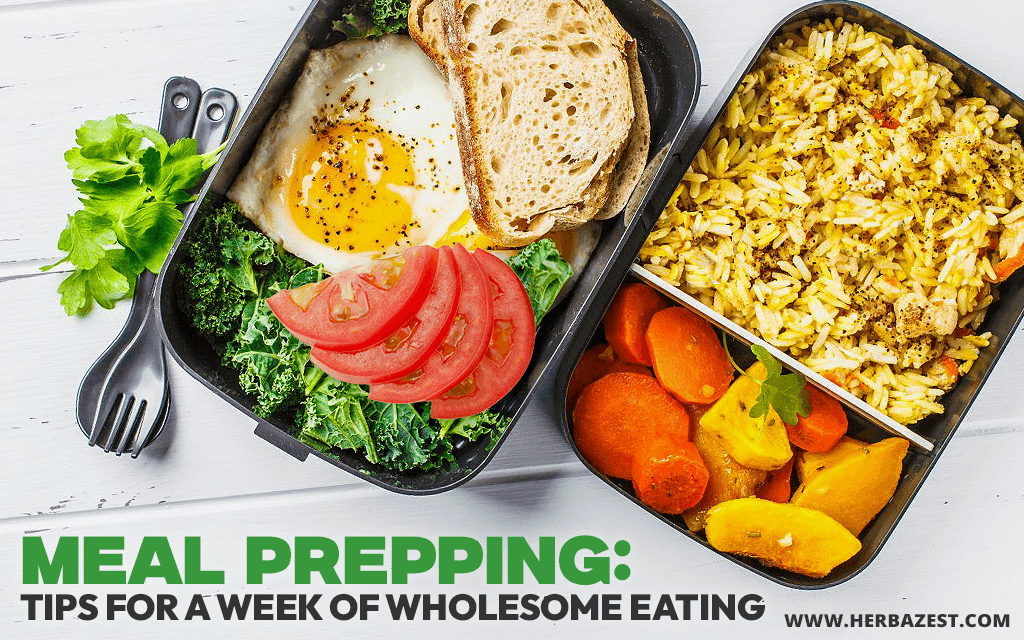Finding time to prepare nutritious meals daily can be challenging. This is where meal prepping comes in—a practice that not only saves time but also ensures you have healthy meals ready to go throughout the week. By dedicating a few hours each week to meal preparation, you can simplify your routine, reduce stress, and maintain a balanced diet. Read on to discover practical tips for mastering the art of meal prepping, making wholesome eating both convenient and enjoyable.
What is Meal Prepping?
Meal prepping involves planning, preparing, and portioning meals ahead of time, typically for the upcoming week. It can range from pre-cooking complete meals to simply chopping vegetables or marinating proteins. The goal is to make healthy eating easier by having ready-to-eat or easy-to-cook components on hand.
Benefits of Meal Prepping
Improperly storing cooked rice can lead to food poisoning! Rice can contain Bacillus cereus, a bacteria that survives cooking and can multiply if rice is left at room temperature for too long. Always refrigerate cooked rice within two hours, and avoid keeping it for more than a day or two to reduce the risk of harmful bacteria growing.1
Meal prepping offers numerous advantages that can simplify your life and promote healthier habits. Here's why it's worth incorporating into your weekly routine:
Time-Saving. Though meal prepping requires an upfront time investment, it pays off by making your weekdays more relaxed with quick, ready-to-eat meals. You'll have more time to unwind without the daily hassle of cooking.
Cost-Effective. Meal prepping helps you stick to your budget and make the most of your grocery purchases. It helps you save money by buying ingredients in bulk and avoiding expensive last-minute takeout or restaurant meals.
Healthier Eating. Planning your meals in advance promotes portion control and balanced nutrition, helping you avoid unhealthy snacking or impulsive food choices.
Reduced Food Waste. By organizing your meals, you'll use ingredients more efficiently, minimizing food waste and making the most out of what you buy.
Improved Variety. Meal prepping allows for a diverse menu, so you can enjoy different flavors and meals throughout the week, reducing the temptation to order takeout out of boredom.
Tips for Easy Meal Prepping
To make meal prepping as smooth and efficient as possible, keep these tips in mind. They'll help you stay organized, save time, and enjoy fresh meals all week long:
1. Choose a Prep Day
Designate a day for meal prepping, typically Sunday or any day that fits your schedule. Set aside a few hours for cooking, chopping, and organizing. Make it enjoyable by listening to music, a podcast, or involving family members.
2. Plan Your Meals
Planning ahead is key to effective meal prepping. During the week leading up to your prep day, create a menu that fits your schedule, dietary needs, and preferences. Aim for a balanced mix of wholesome proteins, carbohydrates, and healthy fats. Start simple and gradually introduce more variety as you get comfortable. Incorporate seasonal produce for freshness and variety. Utilize freezer-friendly recipes like soups, stews, and casseroles that store well.
3. Create a Shopping List
Once you have your meal plan, create a detailed shopping list. Group items by categories—such as produce, dairy, and grains—to streamline your shopping trip. Be mindful of the shelf life of different foods. Buy perishable items that have a shorter shelf life for meals earlier in the week, while choosing items with longer shelf lives for meals later in the week. This ensures that you're using the freshest ingredients first and prevents food waste. Stick to the list to avoid impulse buys and ensure you have everything you need.
4. Invest in Quality Containers
Good containers are essential for meal prepping. Invest in a variety of sizes and types, preferably made of glass, to accommodate different meals. Containers with compartments are ideal for keeping ingredients separate. Maximize fridge and freezer space with stackable containers and freezer bags.
5. Learn Storage Techniques
Proper storage techniques can greatly extend the freshness of your prepped ingredients, especially delicate items like herbs. Storing herbs so they last longer can be done by wrapping them in a damp paper towel and placing them in a sealed container or resealable plastic bag in the fridge. You can also store herbs like cilantro or parsley in a jar of water, covering them with a plastic bag to maintain freshness for longer. These methods help keep your herbs vibrant, reduce food waste, and ensure that your ingredients stay safe to consume.
6. Be Efficient
Cook large quantities of staple foods such as proteins (beans, chickpeas, lentils), grains (rice, quinoa, barley, buckwheat), and vegetables (green beans, carrots, broccoli, asparagus). Divide them into portions for different meals. If time is limited, simply wash and chop vegetables for easy access during the week. Assemble meals in individual containers for a quick grab-and-go option, especially for lunches or snacks.
Meal prepping is a powerful tool for ensuring a week of wholesome eating. By planning ahead, organizing your shopping, and dedicating time to preparation, you can enjoy the benefits of nutritious, homemade meals without the daily hassle. Start with simple steps, gradually build your repertoire of recipes, and soon, meal prepping will become a seamless part of your routine. Embrace the art of meal prepping, and relish the convenience, health benefits, and peace of mind it brings to your busy life.
Sources
- American Journal of Lifestyle Medicine, Home Meal Preparation: A Powerful Medical Intervention, 2020
- Cleveland Clinic, A Beginner’s Guide to Healthy Meal Prep, 2024
- Colorado State University, 3 Steps to Meal Prep, 2019
- Grand Canyon University, The Essential Guide to Meal Prep for College Students, 2023
- Harvard T.H. Chan - School of Public Health, Meal Prep Guide, n.d.
- University of Alabama at Birmingham, Meal planning magic: Save time with these strategies by working smarter, not harder, 2023
- University of Utah, Meal Prepping 101, 2022
Footnotes:
- University of California. (n.d.). Be Careful How You Store Your Cooked Rice. Retrieved September 24, 2024, from https://ucanr.edu/sites/letseathealthy/newsletters/Food_Safety_Update86444.pdf








